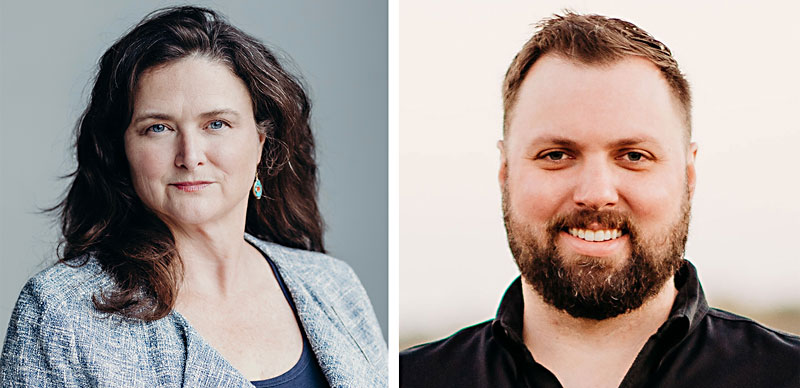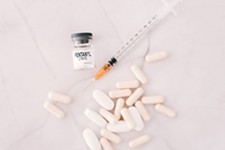Dems Vie to Oust Sid Miller, Take Back Texas Agriculture
Priorities include economic incentives for small farms, rural health care, and internet access
By Lina Fisher, Fri., Feb. 25, 2022
The candidates for Texas Agriculture Commissioner who aren't Sid Miller agree on one thing: The two-term incumbent is a farcical figure who needs to go. Miller's tenure has been marred by a close political consultant's recent indictment for bribery in a hemp license scheme, racist slurs, taxpayer-funded out-of-state jaunts (including one to get the mysterious "Jesus shot" that cures all ills), and other transgressions. Even his own partisans decry his messy track record, and East Texas state Rep. James White, R-Hillister, a House committee chair last session, is giving up his seat after six terms to try to take Miller down in the primary.
Businessman Ed Ireson and attorney Susan Hays are the two contenders in the Democratic primary. Impending cannabis legalization is top of mind in the race; as Ireson says, "It's a matter of when, not if, it's going to happen." Hays says there's a lot to learn from other states' missteps – "California has grossly overtaxed it so their black market continues to flourish, Oklahoma has been way too liberal [with] licenses" – and wants to create a centralized cannabis commission to hold the expertise of multiple agencies. Ireson says there's an opportunity with legalization to create a market where "socially disadvantaged small- and medium-sized farmers get the greatest opportunity." Both prioritize a shift toward economic support for small farmers and away from Big Ag.
Healthy school lunch programs, one of the more important things the Texas Dept. of Agriculture oversees, depend on smaller fruit and veg operations' success. "About 80-90% of the fruits and vegetables we consume come from the Great Valley of California," explains Hays, "which is teetering on environmental disaster. We're putting all our fruit and vegetable eggs in one basket." Ireson agrees: "If the job title is cheerleader for Texas agriculture, what on Earth are we doing outsourcing to California? That's where grants and economic incentives come into play; you can get more subsidies to chicken producers, which are fully owned by Big Ag these days, or focus it on small farmers who are growing fruits and vegetables."
One of Miller's many puzzling moves was to file suit against federal legislation that would provide debt relief to thousands of socially disadvantaged farmers and ranchers that have been historically discriminated against by the U.S. Department of Agriculture. "It amazes me to watch Republican leaders leave our federal tax dollars on the table or set it on fire," says Hays, but even when implemented, "a lot of these federal ag programs are incredibly hard to navigate. The ag commissioner should be working much more closely with USDA and with [Texas A&M AgriLife Extension Service]."
One of Hays' top priorities is rural health care – something Ireson worries is less palatable to a GOP-controlled legislature. She says living near Alpine during the pandemic – "which is in a county that shares a 25-bed, 3-ventilator hospital with two other counties" – made her acutely aware of how limited access to health care is rurally. "If you can't get good treatment for a heart attack within an hour, you're in big trouble."
Hays has more direct experience than Ireson with the work of TDA, having worked with Republicans to draft the state's 2019 hemp legalization bill, House Bill 1325, "where I really came to understand how much Republican legislators distrust and dislike Miller. That bill was written with safeguards against Sid." She was the Dallas County Democratic Party chair in 2002 and co-founded Jane's Due Process, an abortion legal aid nonprofit, in 2001.
Despite her extensive experience, it's that last fact that led the The Dallas Morning News to endorse Ireson, on the grounds of political viability. Hays doesn't worry, "because dirty little secret, the Republicans are nervous about the polling on [Senate Bill] 8. They went too far, and they know it." Conversely, Ireson says, "This position, to me, seems like it should be one that is nonpartisan. It's a department that serves Texans, regardless of their political affiliation."
Though the TDA is not particularly well-funded, both candidates see many opportunities to creatively address gaps in rural infrastructure. "I do not have the answer to a lot of my questions that I raise," says Hays, "but I want to be the ag commissioner that will not only be able to understand them, but also figure out ways to address them."
Got something to say? The Chronicle welcomes opinion pieces on any topic from the community. Submit yours now at austinchronicle.com/opinion.








